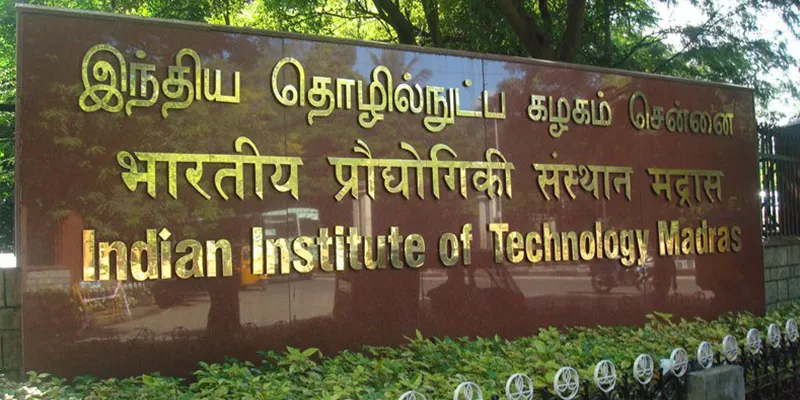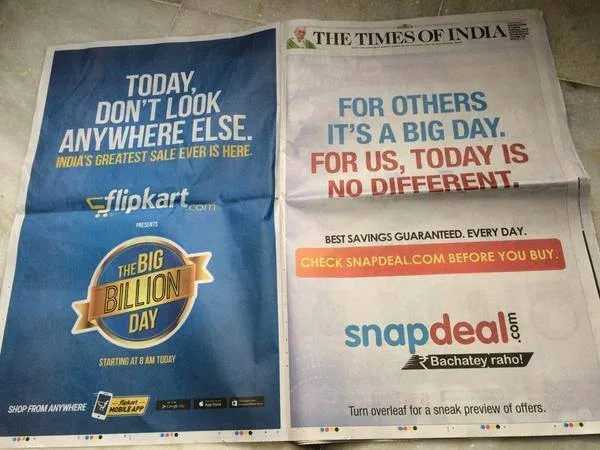How long till IIMs, IITs, and startups mend cracks in their 'cozy' relationship?
Athira Nair

Wednesday June 15, 2016 , 10 min Read
In 1987, NIIT had recruited 25 graduates from across top business schools, including IIMs. One such graduate chose NIIT over Citibank when they came to her XLRI campus. “They came with a lot of audacity. They hardly had 200 employees then,” she recalls. But what made this new graduate opt for a lesser-known entity like NIIT over Citibank way back in the 80s?
“While other large corporates deputed their HR heads to recruit, NIIT Co-founder RS Pawar visited our campus. He spoke about leading the IT revolution in India, and how we could make a significant contribution to it. He sold us the vision,” says Anu Sharma, now Founder of HR Practice. Anu had a “most rewarding” six years at NIIT. “What the bigger startups are doing for e-commerce today, NIIT was doing for IT education,” she says, adding, “I had a fast growth in the organisation. Had I opted for the larger established corporate maybe I would still have been there safe and not ventured into my own today.”
Risk, as they say, drives decision making. To take or not to take the risk is the question.

One can easily flip the above example to fit into today’s e-commerce-led startup scenario, but what you will get instead is a field strewn with landmines. Is Flipkart -- which is increasingly becoming the startup that must not be named -- the big culprit? Are the IIMs equally guilty? Are the fresh graduates just innocent victims in the drama? What does this mean for the startup ecosystem?
Even as the IIM-A grads, whose placement was deferred by Flipkart, weigh their options now that the dust has settled on the explosive topic, let’s take a dispassionate look at the issue, and go beyond the blame game.
As we understand it, it’s a simple case of star-crossed lovers. The ‘unicorn startups’ and premier institutes (IIMs and IITs) were having a good go at it until their relationship got thwarted by outside forces like devaluations and slowdown. It is only a matter of time before they kiss and makeup.
A symbiotic relationship
“It has always been a symbiotic relationship,” says Anu, about business campuses wanting to entertain startups. The startups that visit IIM and IIT campuses come with their pockets loaded with dollar fundings. “It helps them enhance their image as big companies,” she adds.
An investor, who is aware of the hiring scenario, says that investors do look at the second level team – those below the founders. “Investors want to know what kind of people you pull. For leadership roles, you need someone with good past records. That’s why you trust the judgment of Indian education system – and hire from IIT, IIM, LSR, Xavier’s etc.”

Flipkart’s efforts in hiring are so concentrated that their first 200 hires were from the same hostel in IIT-Delhi.
Well-funded startups are keen on top slots and offer exorbitant salaries to compete with the likes of Google. Two years ago, at IITs in Chennai, Mumbai, and Kharagpur, startups were chosen over giants like Google. Students lined up for hiring at Flipkart and Housing where they saw a potential for growth. They wanted to be at the right place at the right time – data points showed them that market was up, says this investor, who did not want to disclose identity.
“In today’s scenario, it is difficult for startups to hire good talent. With funding crunch, many startups do not have that kind of money for huge salaries. It is surely going to be difficult if IITs and IIMs ask for evidence of funding. But you need good people. You have to let go of your ego and cater to the demand,” says the investor.
On the other hand, there is intense lobbying among campuses to score more placements than anyone else. So they need startups.
Does this kind of seeming instability affect the startups’ chances with the investors? “No, it works the other way round. Such issues, more often than not, happen due to funding issues. Investors are constantly evaluating and investing silently," the investor added.
It’s all about the money, honey
The campus hiring plans are generally drawn in the third quarter. E-commerce companies hire from six to 10 colleges for both B.Tech and MBA graduates. Recruitment is around February, and joining dates are usually between May and July. After IIM-A,B,C,L, the favourites are ISB, XLRI, SIMS, IIFT – for (funded) startups as well as bigger companies.

IIT graduates’ average packages are around Rs 9-12 lakh per annum. But Flipkart, Snapdeal, and Amazon offer higher packages: about 20 percent higher. Very often there are packages of Rs 18 lakh too. Amazon, Snapdeal, Flipkart, Ola, Urban Ladder, and Quikr are all treated as fairly well-established companies -- their compensation packages are higher than even Hindustan Unilever, which offers Rs 16 lakh per annum. This trend started two years ago.
However, the All IITs Placement Committee has reportedly mandated the startups disclose their source of funding and balance sheets.
IIM-B and IIM-A did not respond to our query.
A student at IIT Madras, who spoke on condition of anonymity, says this is a good idea. “Shaky companies are also invited to recruit but the students are warned of the consequences. But Flipkart is a reliable brand; they are funded and they can hire people. We want to make sure that only such companies come in the first three days,” said the student, who is graduating now.
Flipkart took six students for software development profiles from IIT-Madras, and one in a business management profile. Sources say that Flipkart was given the slot for only one profile (for product manager) on day one. Slots for other software profiles were given from day two. Corporates like Arm Embedded and Coal India recruited 20-25 graduates from IIT-Madras this year.

An industry expert says that Flipkart’s number in recruiting usually comes after foreign banks like Morgan Stanley. “We definitely prefer more stable companies, although startups are not entirely avoided. In the first four days, there might be only one startup,” the above-mentioned student added.
Not the first time
This is not the first time a placement deferral has happened. IIMs and IITs witnessed it in 2002 and 2008, when many companies deferred their offers. But offers were always honoured.
“During the dot-com bust too, many engineering offers were deferred because many organisations’ business plans got affected by it. Moreover, there are 15 lakh engineers graduating in India every year, and not everyone gets employment, compared to that less than 10,000 management graduates pass out every year and of these, less than 3000 are from the true blue IIMs. So here the demand exceeds the supply,” says Anu, emphasising her point that the IIM grads are regarded “more elite” than their IIT counterparts, and hence all the brouhaha.
But with startups, one such incident can affect many. “They are all viewed with the same lens; so when it comes to a choice between a startup and a corporate, students will be more cautious,” says the industry expert quoted earlier.
The recent shutdown of many startups has had an impact. “When the students become sceptical, they (the startups) lose out on the best and brightest – because these students often have a choice,” he says, adding that it will change after a year or two when more money is offered.
When an employment is offered to a candidate, both the parties inherently get into a social contract too – which is to honour their commitment, as it’s the loyalty factor.
“By deferring the placements, Flipkart has reduced the social contract to a commercial exchange. This is like saying we are opportunistic,” says Anu.
The IIM recruits are also very demanding. You cannot tell them “Ab is department mein do maheene baith kar seekho (sit in this department for two months and learn),” Anu says. IIT recruits are a different ball game altogether. Startups will want them to build a product and that’s that. “They do not have to deal with customer acquisition, raising funds, or dealing with customers like their IIM counterparts,” she adds.
Are premier institutes ready for a new business reality?
But is MBA a necessity in e-commerce? Experts like Arvind Singhal, Chairman of Technopak Consultancy, believe that e-commerce does not need MBA graduates. “E-commerce is basically about buying merchandise and doing logistics. Of course, you need IT; but buying is just a retail function which doesn’t require MBA,” he says.
He believes that e-commerce industry attracts graduates from top B-schools as it provides glamour. He adds,
“The fantasy that all startups are going to be unicorns gives them the idea of billion-dollar ESOPs."
However, according to students, these firms are seen as software companies rather than e-commerce. “MNCs look for MBA graduates in the hope that B-school graduates are groomed well, and have learnt the business. But for startups, especially in e-commerce, IIMs should learn the business model and educate the students on what each industry is all about,” adds Arvind. Incidentally, Flipkart’s case study is taught at Harvard. Similarly, IIMs also have credit scores related to entrepreneurship courses.

IIM graduates are trained to work on businesses that have strong systems and processes, where large data and strong IT systems are in place. “Most often when they join a startup, it is not effective,” adds Anu. In startups, customers are yet to be acquired, data availability is lacking, and it is mostly fluid and chaotic. “There is no clear decision making. If on one day, they have been assigned money for a project, the next day it is deployed elsewhere because that suddenly takes precedence,” she points out.
So when a company like Flipkart goes to these campuses, they are saying, we have the capability to ride all these issues that a startup faces.
Amazon recruits regularly from IITs and IIMs. Says Raj Raghavan, Director Human Resources Amazon India, “We have seen a 140 percent increase in our MBA intake over the last two years. Our intern hiring numbers at MBA schools have seen a steady rise over the last few years and double-digit percentage growth. Our conversion percentage has always been improving and today around 25 percent of our total MBA hires come through Pre-placement offers (PPOs).”
Snapdeal declined to comment and Paytm did not respond to our queries.
Looking beyond IIM and IIT
And yet, IIMs and IITs are not the only answer for many. “When we started out, we could not afford IITs and IIMs, which is why we went to other colleges. There are a lot of smart, talented candidates, who we chose from stringent interviews to do quality control. We knew how to retain them too, so we never felt the need to gravitate towards IITs and IIMs. Although we do not go to IIMs for campus recruitment, we have a lot of folks from IIT and IIM who have applied on their own,” says a spokesperson from Chennai-based Freshdesk.
The company hires from ISB, IIIT, Sastra University (Freshdesk Founder Girish Mathrubhootham’s alma mater), SSN College of Engineering, Sri Venkateswara College of Engineering, among others.
“I would say it is these other graduates from non-IITs and IIMs who need our sympathies more. The IIM and IIT grads have an enviable network of seniors and alumni association to tap into. Even the ones from IIM-A whose placements were deferred will easily get jobs again,”
says an IIM-B alumnus.
And though one may get the impression that students from these premier institutes care only about jobs with fat pay cheques, it is not always so. Every year, a small percentage of students opt out of campus placements to start their own ventures. A risk they are willing to take in the pursuit of a higher goal.










![[Funding alert] Media-tech startup Toch raises over $400K in round led by Inflection Point Ventures](https://images.yourstory.com/cs/2/b3bfb136ab5e11e88691f70342131e20/Imagevgyw-1586973026465.jpg)